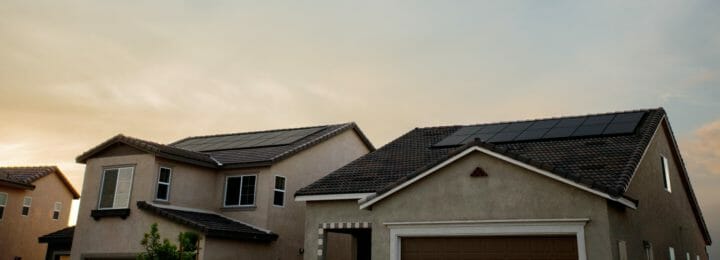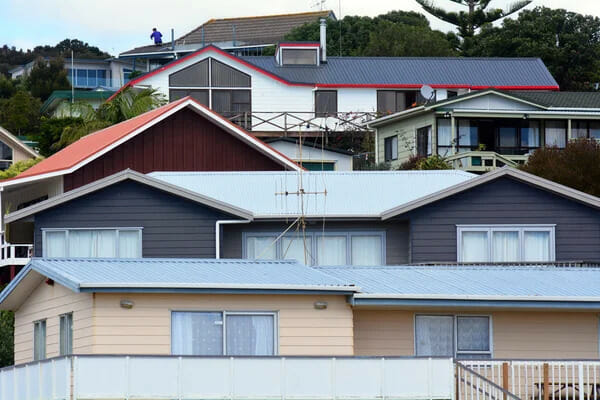
May 15, 2020
Uncategorized
By having an energy efficient home you can reduce your carbon footprint as well as the cost of your utility bills. Here come some major structural and some minor ways of changing your home for the better.
What is an energy efficient home?
Energy efficient homes reduce unnecessary energy consumption, greenhouse gas emission and demand for non-renewable resources. To reach that, you have to think long term. You can calculate energy efficiency when you design your new home, or when you buy a new ligh bulb. Even if it doesn't feel like it, babysteps do count.How your home can work for you - Structural changes
The structural changes of your house towards a more energy efficient home can include changing your windows, building in a smart thermostat, using solar panels and adjusting the insulation of the house.Changing the windows (save up to 33%)
 The most energy efficient windows are double or tripple glazed. They come in a wide range of materials, out of which the best choice is Low-E glass. It has a special coating which reflects heat back into the home but it also lets in the light.
The most energy efficient windows are double or tripple glazed. They come in a wide range of materials, out of which the best choice is Low-E glass. It has a special coating which reflects heat back into the home but it also lets in the light.
Build in a smart thermostat (save up to 30%)
 Smart thermostats allow your home to keep the specific temperature whenever you want it to. These thermostats can be programmed to adjust to the temperature of the home, or they can be programmed for a schedule so they turn on only in the morning or only after 7 pm, it's your choice.
Smart thermostats allow your home to keep the specific temperature whenever you want it to. These thermostats can be programmed to adjust to the temperature of the home, or they can be programmed for a schedule so they turn on only in the morning or only after 7 pm, it's your choice.
Put solar panels on the roof (save even $7,000 over 20 years)
 If you are living on a sunny side of the country solar panels are the best choice for you to provide renewable energy for your home. Dependig the size of your panel you can provide energy for smaller parts of your house or for even a whole floor. If you connect your solar panel to the grid you can provide energy for others when your panel generates more energy than you can use.
If you are living on a sunny side of the country solar panels are the best choice for you to provide renewable energy for your home. Dependig the size of your panel you can provide energy for smaller parts of your house or for even a whole floor. If you connect your solar panel to the grid you can provide energy for others when your panel generates more energy than you can use.
Insulate your home (save up to 50%)
 If you rent your property out by 2021 you have to comply with the Healthy Home Act, in which insulation is a must. Using foam insulation you can fill small gaps and pockets in your home’s framing.
If you rent your property out by 2021 you have to comply with the Healthy Home Act, in which insulation is a must. Using foam insulation you can fill small gaps and pockets in your home’s framing.
How your home can work for you - Minor changes
You don't have to ask for professionals and restructure your home to save energy in the house. You can deliver these minor changes on your own.Use low-flow Showerheads (save up to 50%)
 Low-flow showerheads are saving water by reducing the amount of water used, while providing the usual pressure. Special showerheads can even detect the closeness of the body, and change the water usage accordingly.
Low-flow showerheads are saving water by reducing the amount of water used, while providing the usual pressure. Special showerheads can even detect the closeness of the body, and change the water usage accordingly.
Use LED lightbulbs (save up to 75%)
 LED stands for Light Emitting Diode. These bulbs use much less energy compared to the conventional incandescent bulbs by almost 90%. Purchasing one might be more costy but these bulbs last more than 20 times longer than the incandescent ones, therefore they cost less on the long term.
LED stands for Light Emitting Diode. These bulbs use much less energy compared to the conventional incandescent bulbs by almost 90%. Purchasing one might be more costy but these bulbs last more than 20 times longer than the incandescent ones, therefore they cost less on the long term.
Choose your curtains wisely (save up to 25%)
 Blackout curtains save energy by blocking the sun in the summer and insulating the room in the winter. It can be a cheaper but also less efficient alternative for double or triple glazed windows. They are also great for sound cancelling thus creating an excellent sleeping environment.
This article retrieved information from:
Blackout curtains save energy by blocking the sun in the summer and insulating the room in the winter. It can be a cheaper but also less efficient alternative for double or triple glazed windows. They are also great for sound cancelling thus creating an excellent sleeping environment.
This article retrieved information from:
- https://homeguides.sfgate.com/energyefficient-home-78701.html
- https://www.newhomesource.com/learn/energy-efficient-upgrade-savings/
- https://www.curbed.com/2018/2/23/17045884/energy-efficient-home-tips-savings
- https://home.howstuffworks.com/green-living/blackout-curtains-save-energy.htm
- https://www.viribright.com/lumen-output-comparing-led-vs-cfl-vs-incandescent-wattage/



